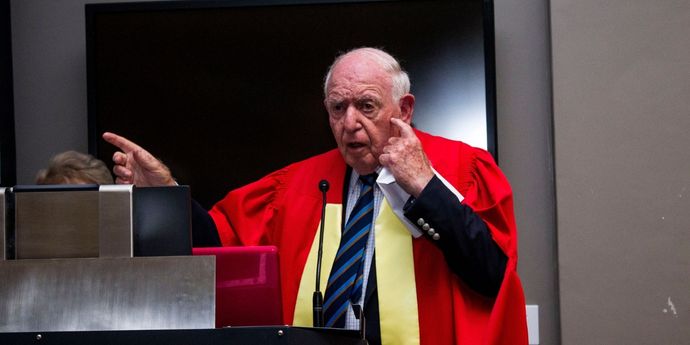After 20 years of living and working across four continents, Mutemwa Ushewokunze has returned home to Zimbabwe armed with degrees from the UCT GSB and Imperial College London to help take the country’s banking sector to the next tech level.
When the Australian company he had served for nearly eight years chose to close its South Africa cash equities offices at the end of 2019, and consequently leave him without a job, Mutemwa Ushewokunze took it as a sign.
For some 20 years he had been “selling” South Africa and the rest of the continent in various equities trading positions, jumping between Johannesburg, London, and New York. Along the way, he found time to complete a Master’s of Commerce in development finance at the University of Cape Town Graduate School of Business (UCT GSB) and an MBA through Imperial College London.
But now Mutemwa was taking stock. “I realised that it was time to go home,” he says. “I felt that the greatest impact I could make was in my home country.”
He stayed in Johannesburg over 2020 as the pandemic took hold, working both as a consultant and leading the build-up of a cash equities operation in an ambitious new venture. But intention and opportunity collided when First Capital Bank Zimbabwe came knocking early in 2021. By the beginning of March, Mutemwa was installed as the bank’s commercial director and head of corporate and investment banking in Harare.
There was some adaptation required. Despite many reports of the country’s imminent demise, the value chain in Zimbabwe is pretty robust and sophisticated, says Mutemwa. Notwithstanding, investment banking in the country is not without its challenges. Hyperinflation remains a thorn in the country’s side, which has resulted in a thriving and substantial parallel market in foreign currency. And companies and investors pay a premium for doing business in the country by having to set up and maintain their own infrastructure, covering everything from roads to power. “But broadly speaking, the issue is really policy uncertainty,” summarises Mutemwa.
But there is an area on which Zimbabwe can build, he believes: technology.
Some 20 years ago, businessman Strive Masiyiwa took on the government of Robert Mugabe in protracted court battles to start up what would become telecommunications giant, Econet Wireless, says Mutemwa. While Masiyiwa had to flee the country shortly afterwards, in his wake he left the makings of a sound telecoms infrastructure, including the indispensable Econet money-transfer and microfinancing service known as EcoCash. “You can’t operate in our country without EcoCash,” says Mutemwa.
“From a tech perspective, Zimbabwe has the foundations in place — we’re there and there about,” he comments about how telecoms in the country match up against the likes of South Africa. “What I might argue is that the ancillary services that follow — your cloud services, your application development — is where we are still lagging. But it’s coming.”
Mutemwa sees particular relevance for tech in the financing and running of the SME sector. The sector — which by one 2019 study accounts for 94% of business owners in the country but contributes “only” 50% to its GDP — can be the vanguard in the country’s development aspirations. What’s more, such small businesses are considered a significant source of technological innovation and product development.
And the potential benefits to SMEs are equally plentiful. “The use of technology improves access, it removes information asymmetry, and in the banking and financing space, it means better outcomes in terms of price discovery, all of relevance to SMEs” says Mutemwa.
Little wonder that the UCT GSB alumnus considers himself to be in the right place at the right time. Or as he puts it: “It gives me an almost perfect landscape to be able to curate my intention.”
























































